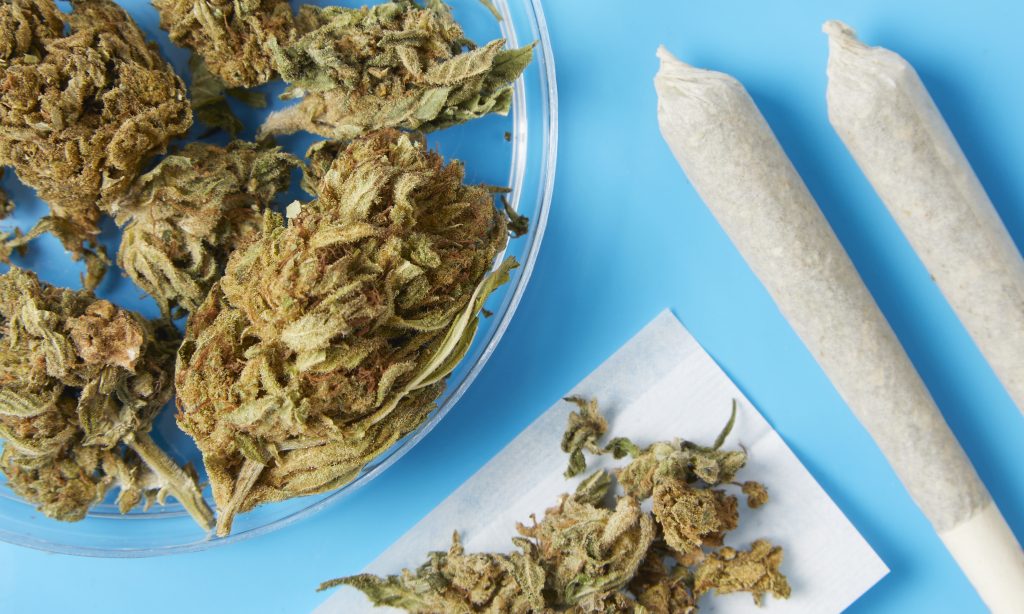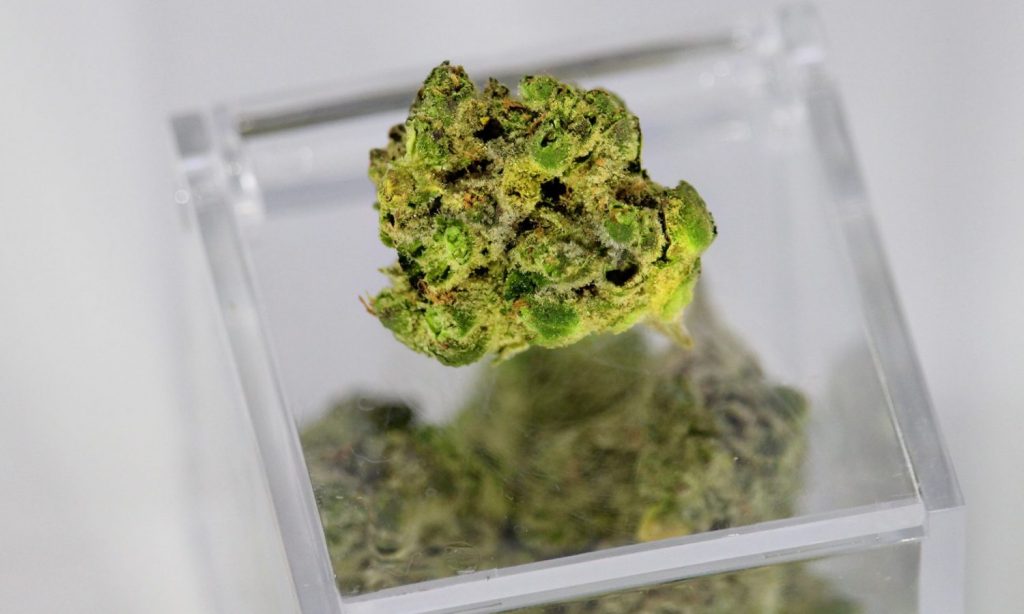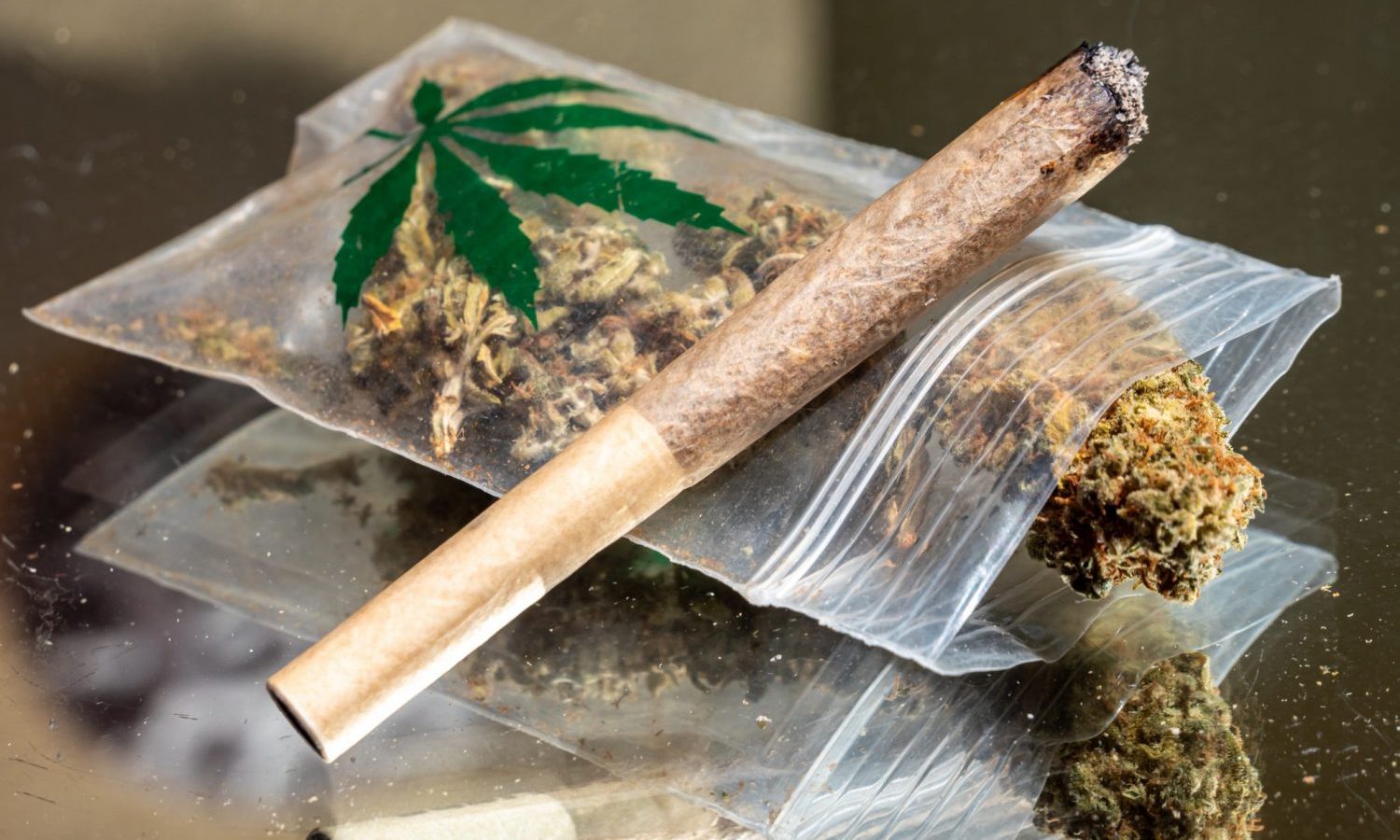Delta-8 is a minor cannabinoid, meaning it occurs less abundantly than major cannabinoids like traditional THC or CBD.
Though delta-9 tetrahydrocannabinol (THC) may be the most well-known cannabinoid, it has a counterpart on the rise: delta-8 THC. Scientists and researchers believe there are over 120 different cannabinoids in hemp and cannabis plants, and delta-8 is the newest to emerge.
Delta-8 THC is an isomer of delta-9 THC, that is thought to have neuroprotective properties such as appetite stimulant, nausea reduction, and anxiety and pain management. Delta-8 THC does contain some psychoactive properties, but reportedly exhibits less psychotropic effects than traditional THC or delta-9.

The legal standing of delta-8 remains somewhat of a gray area. According to the 2018 Farm Bill, the production of hemp products with a delta-9 THC threshold of 0.3% or less is legal. So, if delta-8 THC products are made from hemp, they are technically legal at the federal level. However, some states have begun regulation of the new compound, so be sure to check the legal status of delta-8 THC in your state before buying. Some legislators are considering the Farm Bill terminology to be loophole and are seeking to close the gap.
What Is Delta-8 THC?
First, let’s define what delta-8 THC actually is. Delta-8 THC is one of many naturally occurring compounds found in hemp and cannabis plants. Delta-8 is a minor cannabinoid, meaning it occurs less abundantly than major cannabinoids like traditional THC or CBD.
Delta-8 and delta-9 share a similar chemical structure, with a few key differences. Delta-8 THC contains the bond on the 8th carbon chain while delta-9 THC has it on the 9thcarbon chain. This difference in structure is what may cause delta-8 to have similar potentially therapeutic effects to that of delta-9 THC, but reportedly less amplified. Delta-8 can make you feel high but is thought to create a milder effect.
How Is Delta-8 THC Made?
Though research surrounding all cannabinoids is relatively new and emerging, there is less knowledge in the direction of minor cannabinoids compared to the primary ones like delta-9 THC or CBD. Delta-9 THC that is produced and sold medically or recreationally comes from cannabis plants, while hemp plants are used for CBD rich strains that fall under the 0.3% or less THC threshold.
Most CBD products, apart from flower that undergoes little to no processing, are created using an extraction method. There are multiple forms of extraction, but the most common is the use of CO2 extraction, or supercritical carbon dioxide. This method separates liquid from gas, and the end results are typically an extract or oil. This is also usually the first step in delta-8 THC production.
RELATED: How To Know If Delta-8 THC Is Right For You
Even though delta-8 THC is found in all hemp and cannabis plants, most products available today are made from hemp plants that undergo an extensive process that turns CBD into delta-8. The process includes CBD being dissolved in a solvent. An acid is added to this mixture, which is then heated for hours, where a chemical reaction occurs that converts CBD to delta-8. Once the reaction is complete, the solution is separated and neutralized.

The process involves chemicals and acids, that can often times require cleanup in order for a product to be safe and pure. Similarly, there can be more than trace amounts of delta-9 THC left, which could have an adverse impact on you if the goal was to avoid traditional THC for a reduced “high.” This is why third-party lab testing is so important for delta-8 THC products.
Rely on Third-Party Lab Testing
There are usually byproducts of converting CBD to delta-8, and when trying a product claiming to be made of a newly popular cannabinoid, lab testing is vital. Through the use of HPLC (High Performance Liquid Chromatography) testing, the analyzation of purity, potency, pesticides and solvents can be determined, allowing you to find a reliable, safe and legal product to use.
RELATED: Hemp Industries Association Urges Regulation, Not Prohibition, Of Delta-8 THC
Here at Real Tested CBD, we use HPLC to take the guesswork out of your cannabinoid purchase. From safety to quality, we bring the transparency in CBD and THC directly to you. For delta-8 products that have to undergo the process of conversion from a major cannabinoid to the minor delta-8, lab testing is the best way to know exactly what you are getting.


